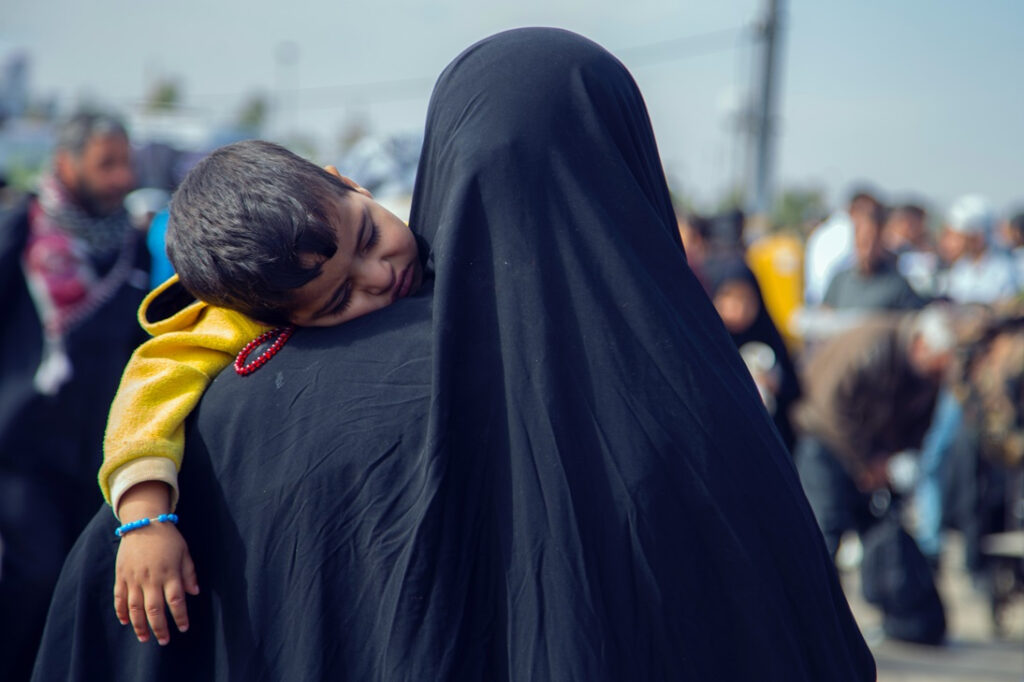My fourth-grade teacher came into our classroom mid-morning and announced that the Twin Towers had been attacked. As the day unfolded, we learned Osama Bin Laden had orchestrated the attack. My classmate Jeremiah and I conspired about all the torture tactics we’d use to punish the terrorists, as schoolboys do.
“I’d tie him to a pile of bricks and sink him to the bottom of the ocean,” said Jeremiah.
So, in August 2021—twenty years later—I was astonished to see Afghans falling from C-17s as they fled the Taliban. I was heartbroken and driven to prayer.
The news cycle has since moved on. But for the millions of refugees and countless others, the danger hasn’t moved on. There are innumerable ways we can pray for Afghanistan and all the Christians there. Here are just five.
1. Pray for Perseverance for Christians in Afghanistan
Christians in Afghanistan are facing near-certain execution as Taliban forces claim control. As a comfortable Westerner, I have difficulty imagining myself in their shoes. Yet Scripture commands us: “Remember also those being mistreated, as if you felt their pain in your own bodies” (Heb. 13:3). It also tells us to “Rejoice with those who rejoice; weep with those who weep” (Rom. 12:15).
Let us pray fervently for Christians in Afghanistan and their miraculous deliverance. Knowing the tests they’re certain to face, let’s also pray for their perseverance. A crown of life awaits those who lose all to gain Christ.
2. Pray for Afghan Refugees
According to the UN Refugee Agency, there are roughly 2.6 million Afghan refugees worldwide. Another 3.5 million Afghans are displaced from their homes yet remain within the country. These refugees are not only Muslims but include Christians and other Afghan minorities. The trauma of the Taliban’s takeover has not ended for them.
God’s heart for the refugee is apparent throughout Scripture. His redemptive plan began with Abraham, a nomad, and culminated in the Lord Jesus Christ, who fled to Egypt as a youth to escape Herod’s rage. Deuteronomy 10:8 reminds us that God “executes justice for the fatherless and the widow, and loves the sojourner, giving him food and clothing” (ESV). We must allow ourselves, our families, and our churches to be moved with compassion when faced with the opportunity to love our fellow image-bearers who have been displaced due to violence and war.
3. Pray for Repentance in the US
Americans should not be surprised by our nation’s humilitation last year. God is humbling us. We have been a proud people.
We thought of ourselves as the world’s saviors, but we have our own sin to address. We have shed the blood of innocent millions through abortion, desecrated marriage, idolized self, marred the image of God in man and woman, stoked grievances, harmed children, and given the place of God to the state and our favorite political movements. “[F]or my people have committed two evils: they have forsaken me, the fountain of living waters, and hewed out cisterns for themselves, broken cisterns that can hold no water” (Jer. 2:13).
For these reasons and more, we aren’t the world’s saviors—Jesus Christ is. He’s the one who can “nation-build.” Yet rather than exporting the gospel to the world, we sought to export our political system merely. But ultimate peace is impossible apart from the lordship of Christ.
As we repent, let us renew our efforts to bring the gospel to the world, leaving behind our political idolatries. Of the 38 million people in Afghanistan, .01 percent call themselves evangelical Christian (source). The secular West and ravaged South Asia both need the gospel.
4. Pray for Judgment for God’s Enemies
The Greek word for judgment is where we get the English word crisis. What do the ideas of crisis and judgment have in common? Both divine judgments and crises tend to reveal things. They show who belongs to God and who does not.
As crisis unfolds, it’s biblical to pray for judgment on the evil, oppressive, unrepentant Taliban forces. In Revelation, the martyrs pray, “O Sovereign Lord, holy and true, how long before you will judge and avenge our blood on those who dwell on the earth?” (Rev. 6:10).
The Bible is full of imprecatory prayers calling down judgments on the enemies of God. We are also commanded to love our enemies (see Matthew 5:43-48). We should desire their repentance and salvation so that they can escape divine retribution. Yet as those who yearn for God to be glorified, we must also long to see his justice against the wicked displayed in the world.
5. Pray for Missional Opportunities
Let’s pray for opportunities to share the gospel with the Muslims around us.
Chances are that wherever you live, there are Afghans or other Islamic diaspora peoples within reach. If you’re from Fremont, California or Northern Virginia, both areas boast the largest concentrations of Afghans in the US (source).
Has your church ever considered what it can do to identify the unreached people groups in your own community? God is bringing the nations to our own backyard. He’s committed to expanding his kingdom even when missionaries can’t easily go. We can cross cultures without crossing borders.
May the Lord grant us faith to fight on our knees until the Prince of Peace fully displays his kingdom in this world.

Commit to pray with us for Afghan refugees, and stay tuned for important updates as we seek to minister to displaced persons across the globe.
Editor’s Note: This article was originally published August 25, 2021, and has been updated to remain relevant.




